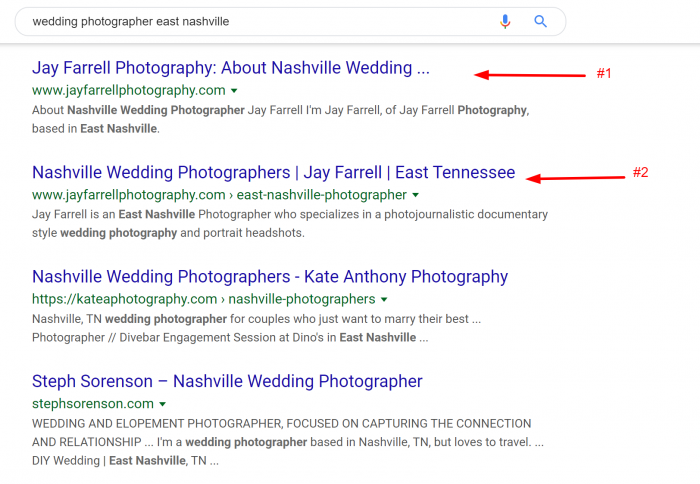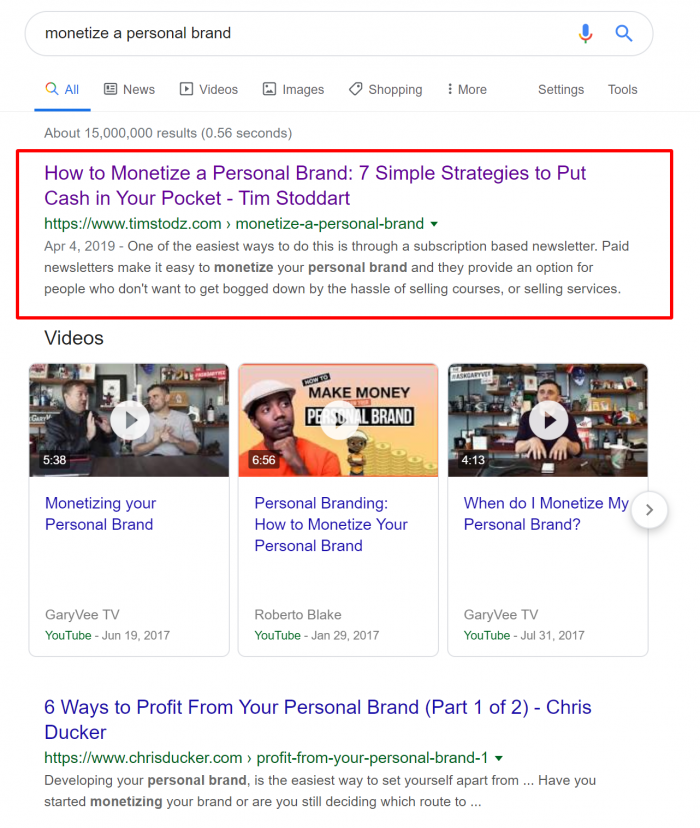f we spend time and effort creating content to get more traffic, SEO becomes an unavoidable subject.
SEO plays a big role in getting a return from all of our efforts and building our audiences through email signups, opt-ins, and ongoing traffic.
But one of the mistakes I’ve seen business owners make is that they don’t approach SEO with a plan or a specific outcome in mind. We tell ourselves things like: “If I keep writing content, the search traffic will come naturally.”
That’s true. However, I can tell you from experience that if you have a plan, you will start seeing huge success with SEO much sooner.
If you do it right, you can almost guarantee that the traffic that comes to your site will be relevant.
Sounds great, but what methods can you begin using right away? What exactly do you need to do in order to increase your search traffic?
Let’s get started with three easy ways SEO can help you get more traffic to your website.
1. Find a niche and work to own it
The best way to get more SEO traffic to your website is to focus on getting the right traffic.
Copyblogger founder Brian Clark has talked about building a minimum viable audience.
You can apply that same idea to your search engine optimization, because what’s the value of getting lots of traffic if you’re unable to connect with your audience or you’re unable to convert your traffic into fans or subscribers?
We must rethink our approach.
Who can we best serve through the content we create? How can we identify a group of keywords and search queries that are most in line with the people we want to help?
By asking ourselves these questions, we can start to focus in on niches and demographics that are most appropriate. When we do this, we also lessen the competition of other businesses battling for the same search traffic.
Now we can find keyword opportunities that our business has the potential to rank for and we’ll start to gain traffic through SEO.
A location-specific example
Imagine I’m a wedding photographer living in Nashville and I want to grow my business by promoting my services through online search.
It’s unrealistic to think that targeting the keyword “wedding photography” is going to work. That niche is too competitive and the audience is too broad.
Let’s target it down more. Let’s say I, instead, try to target an audience in Nashville. Now, I’m promoting my services through the location as a “wedding photographer in Nashville.”
With this simple change, I have narrowed down my potential audience by millions of people.
Let’s take it one step further.
Could I focus in on my audience to “wedding photographer in East Nashville?”
You bet I could.
Believe me, there are plenty of people in East Nashville looking for wedding photography services.
By applying the minimum viable audience approach to search, you can make real progress in gaining more traffic with SEO, building your audience, and most importantly, growing your business.
In fact, when you search for “Wedding Photographer East Nashville,” the same local business appears at the #1 spot and the #2 spot.
Who do you think is getting all of the phone calls from the wedding photography market in East Nashville?

Touché, Jay Farrell. 

This is the power of targeting a niche.
2. Be intentional about keywords
Keywords still matter.
The Google search algorithm is very sophisticated, but it’s still an algorithm. It needs to pull information from content and “decide” what that piece of content is about.
Google even states in its “How Search Works” overview that keywords do play a role in search results.
Also, my own experience tells me that assigning keywords to pages has a great benefit in search results.
Okay, so what does this look like?
- Write your keyword in the first 100 words of your content.
- Add the keyword at the beginning of your title tag.
- Use the keyword in the URL (if possible).
They’re simple, but following those steps has helped me grow my personal brand as well as help me grow my marketing agency by leaps and bounds.
For instance, last year I wrote an article about “How to Monetize a Personal Brand.” I followed best practices with my keywords and within two weeks, I got to the #1 spot.

Not only that, but I beat our friend Chris Ducker, who is now sitting at #2.
Notice, I had my keyword in the title tag, in the URL, in the content, and throughout the content as well.
This is an excellent example because Chris has a much more “powerful” site than I do, but my article did a better job of targeting the keyword than his.
If you’re intentional about the keywords you try to rank for, you’ll see success much quicker than if you simply wrote content without any direction.
Comments
Post a Comment